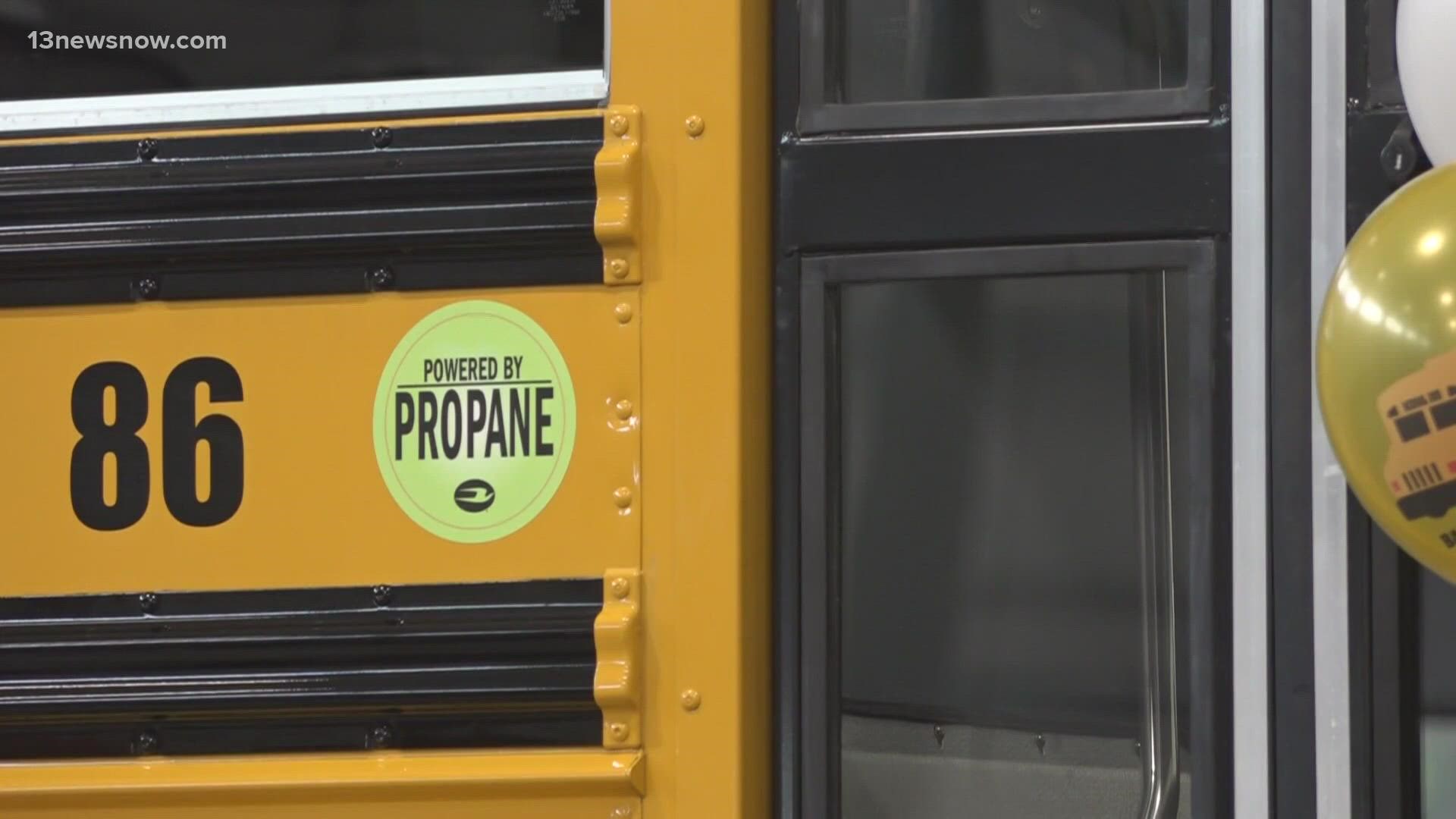NEWPORT NEWS, Va. — As gas prices hold steady at record highs, school divisions across Virginia are replacing diesel-run school buses with buses that rely on alternative fuel.
Over at Newport News Public Schools, propane buses make for a quieter ride, a cleaner ride -- and lately, a cheaper ride.
The division’s transportation director, Shay Coates, said rising gas prices mean diesel buses cost twice as much to fill up as propane buses.
“Last week our pricing for propane fuel was $2.05 a gallon, where diesel was at $4.08 a gallon," Coates said. "We’re able to go on a field trip all the way up to Northern Virginia and back on one tank of gas."
The NNPS Division is replacing another 10 of its diesel-run school buses with new buses that run on propane as part of a yearslong effort to replace the entire fleet.
The money comes from a $1.5 million federal grant from the Environmental Protection Agency for Virginia school divisions to switch over to clean-energy buses.
Newport News Public Schools got a piece of the pie, receiving $250,000.
The money couldn’t come at a better time: in March, the average price of diesel fuel in Virginia was more than $5 a gallon.
But as Newport News parent and teacher Cat McGrath pointed out, the initiative is about more than just saving money at the pump, it's also about saving the planet. Replacing the old diesel buses goes a long way in reducing harmful emissions.
“I don’t want to see that they’re only going to certain neighborhoods. I want to make sure they’re in every neighborhood that we can because don’t want to leave certain neighborhoods with our diesel, dusty [buses]," McGrath said. "It’s not appropriate."
“I’d like to see the entire fleet changed. I’d prefer something along the Tesla line, I’d like to be using batteries that are powered hopefully by electricity hubs.”
Coates said the division slowly began replacing its diesel bus fleet five years ago. So far, they have 125 buses running on propane, out of 340 buses total.
Parent Maura Santoni also welcomed the move.
“I think it’s an amazing idea. We need to start somewhere, and this is a wonderful place to start,” Santoni said. “If anyone’s been behind a diesel bus, you can obviously tell the fumes coming off it – that can’t be good for our environment.”
Coates agreed the environmental impact is one of the best features about switching to propane buses.
He pointed out, if there is a leak, the fuel doesn't puddle of leave a residue, but instead vaporizes. He said the fuel is non-toxic.
The engine noise is much lower than a diesel engine, and the buses are also cheaper to maintain: $2,100 per year in operating costs compared to $3,250 for diesel buses.
NNPS is also using the Federal Alternative Fuel Excise Credit.
"This program gives us $.36 to $.50 back per gallon used doing a calendar year," Coates explained. "Another source to help buy another bus."

